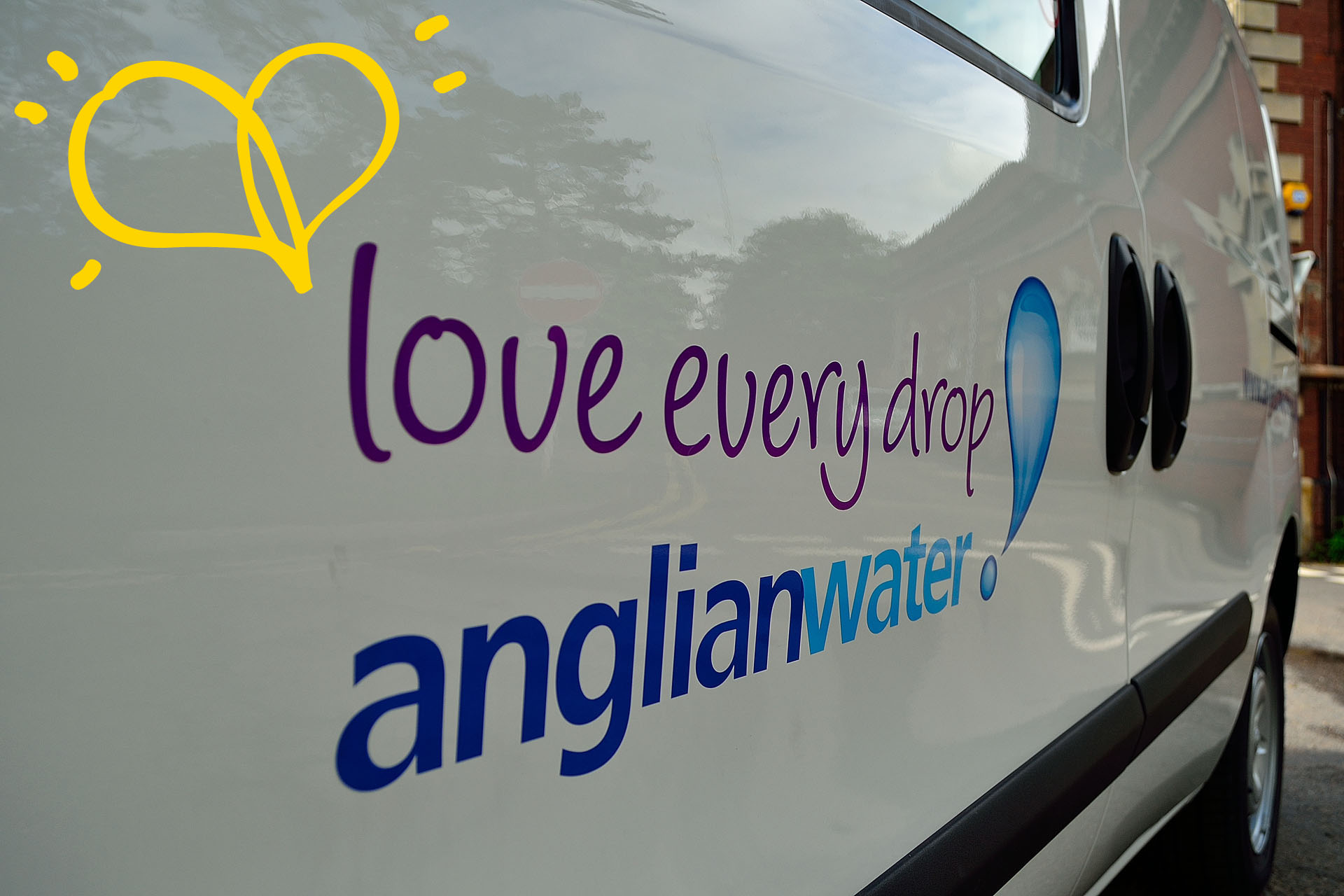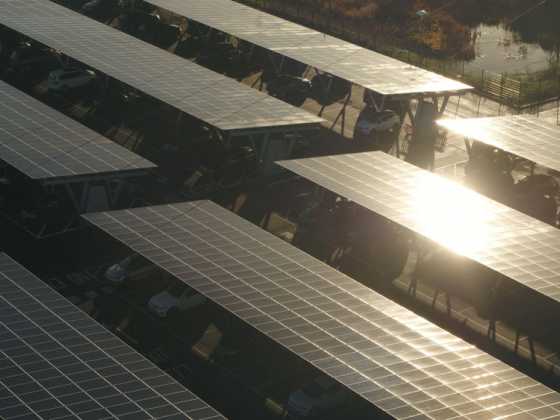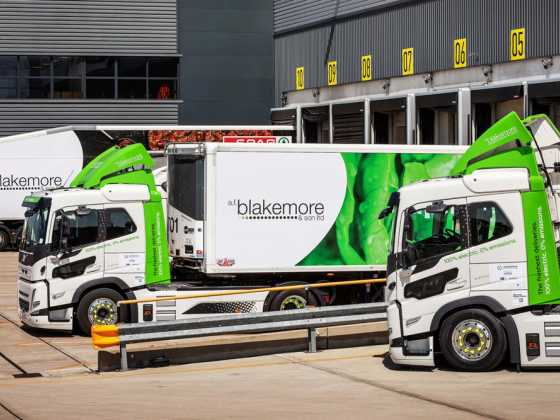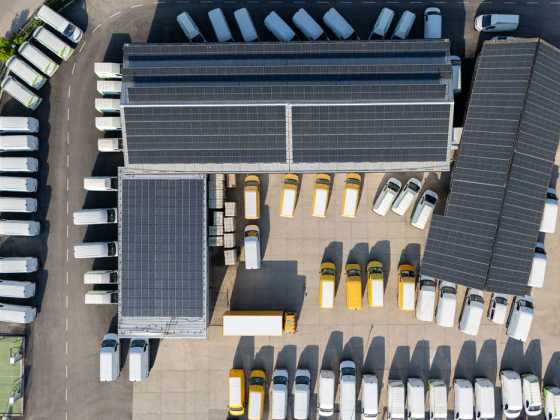Using wastewater to supply green hydrogen fuel for heavy vehicles

Giulia Pizzagalli, Innovations Project Manager at Anglian Water talks through a game-changing project which sees the company trial the production of green hydrogen from wastewater, which can then be used as a fuel for heavy vehicles
Green hydrogen will be a very important fuel in the future to help transport fleets decarbonise. Indeed this is spelled out in the UK Government’s Hydrogen Strategy. This says green hydrogen is “fundamental to achieving net-zero in transport, potentially complementing electrification across modes of transport such as buses, trains and heavy goods vehicles”.
Green hydrogen powered vehicles are well suited as a zero-emission alternative to diesel for a number of reasons. Firstly, unlike battery electric vehicles, the refuelling process and time are similar to diesel refuelling and much quicker than recharging of batteries. This is critical for fleet owners who need fast turnaround and cannot afford long periods of vehicle and driver downtime.
Secondly, hydrogen fuel cell vehicle technology weighs less than the large batteries that would be needed for electric-powered heavy vehicles, meaning hydrogen power vehicles can carry heavier loads.
Green hydrogen can also be used in hydrogen combustion engines, which have near zero CO2 emissions.
Altogether, green hydrogen can replace the use of diesel in heavy vehicle fleets and deliver impressive carbon reduction results that will help fleet owners achieve their own net zero goals. For example, it is estimated that 1kg of hydrogen fuel offsets 5.6 litres of diesel and 12 kilograms of CO2.
However, there has been a concern that green hydrogen is being produced at some distance from where demand would be highest in urban areas.
Green hydrogen is expected to be produced in the UK in plants using electrolysers powered by nearby offshore or onshore windfarms, or large scale solar, which tend to be on the coast or in more remote parts of the UK. Water companies are located closer to built-up areas across the country and have access to wastewater that, when treated, could replace the need to use fresh water for electrolytic hydrogen generation. This means that water companies, such as Anglian Water, can become a key part of the value chain for green fuels across their respective geographies and reduce the transport and logistics costs involved.
The role of water companies
The Anglian Water Triple Carbon Reduction project, which also involves other partners from the energy sector, the water industry and academia, is seeking to establish how water companies like Anglian Water could fulfil this green hydrogen demand both internally and for a variety of end users, including heavy vehicle fleets, by coupling green hydrogen generation with wastewater treatment.
The co-location of renewable fuel generation and wastewater processing also aligns with Anglian Water’s greater strategy of reducing its own greenhouse gas emissions when it treats water. The water sector currently accounts for almost a third of the UK’s greenhouse gas emissions through its waste and industrial processes. Direct emissions from treatment processes (process emissions) have been highlighted as a key priority for the water sector as they are expected to represent the largest proportion of residual emission by 2030.
The water industry is committed to addressing this issue. All English water companies including Anglian Water have pledged to reach net zero carbon emissions by 2030, with Scotland and Northern Ireland to achieve the same in 2040 and 2050 respectively.
The Triple Carbon Reduction project
The Triple Carbon Reduction project, which is being followed closely by the rest of the industry, is designed to both cut greenhouse gas emissions and electricity used in the wastewater treatment process, while delivering a new source of renewable energy.
Using novel technologies, the project will create a ‘triple carbon’ synergy and demonstrate an alternative wastewater treatment process that could significantly reduce the volume of emissions created compared to the current process.
A demonstration plant is being set up at Anglian Water’s Cambridge Water Recycling Centre in Milton and the project has a completion date of June 2024.
The core of the demonstration is an electrolyser, using renewable energy from the site to split water into hydrogen and oxygen, with a view of using treated effluent in the future, to avoid using potable water and safeguard our water resources and the resilience we are building to fulfil demand in our Region. The oxygen produced will be used into a novel wastewater treatment process called a Membrane Aerated Biofilm Reactor (MABR).
The water industry is in a unique position to exploit this synergy as it has both the resources, such as water and renewable energy, and end uses for the hydrogen and oxygen products. This creates an elegant circular system to reduce carbon and recover resources.
By coupling an electrolyser and MABR, the Anglian Water project aims to achieve three main carbon benefits, hence the name Triple Carbon Reduction, in line with the aims of the industry’s Water UK Net Zero 2030 Route Map.
Project benefits
The benefits of the Triple Carbon Reduction project at Anglian Water are vast. Firstly, there’s
hydrogen production. This will represent a new and additional source of renewable energy, which can be used in applications that are currently challenging to decarbonise such as diesel generators or heavy vehicle fleet, depending on the scale of generation. The hydrogen by-product from the project will help address the need for wider production of green hydrogen and will be off taken by Element 2, who are building the first national network of hydrogen refuelling stations (HRS) across the UK and Ireland. Their goal is to enable the rapid transition of heavy road vehicles and municipal fleets to a zero carbon, zero emissions future.
Elimination of nitrous oxide emissions
The project will demonstrate a viable alternative way to treat wastewater that could significantly reduce its impact on emissions. This demonstration plant process is working towards the goal of eliminating nitrous oxide, a greenhouse gas produced during wastewater treatment, which has an impact on the atmosphere 300 times greater than carbon dioxide.
What’s more, this alternative treatment process will aim to reduce the energy consumption by up to 85 percent compared to conventional processes.
A source of green hydrogen
While the trial is in its early stages, Anglian Water is working with Element 2 on how green hydrogen will be used in their refuelling network for heavy vehicle fleets. The likely initial market for the hydrogen produced will be buses, hydrogen demonstration vehicles (trucks, refuse collection vehicles and vans), plus used to support vehicle manufacturers develop hydrogen engines. Even though the test rig is small and a pilot, Anglian Water expects it to achieve a production rate of 90 kilograms of hydrogen every 24 hours, which would be enough to fuel thirty cars or six buses.
If the trial proves successful, the Triple Carbon Reduction system is designed to be scaled up to treat more wastewater and produce more green hydrogen. As the project is being done in partnership with other water companies, the success of the project could lead to more wastewater treatment plants adopting this kind of technology. The higher volumes of green hydrogen produced will support the hydrogen refuelling plans of Element 2 and other energy companies.
For example, Element 2 has a partnership with leading fuel card provider Radius and its UK Fuels network. This collaboration will enable more than 100,000 commercial fleet customers to access a reliable supply of fuel cell grade hydrogen across the UK in the future. Element 2 has received planning permission for two permanent hydrogen sites on the A1(M) and M6 motorways (Exelby services).
Element 2 is active in refuelling hydrogen vehicles today and it’s ambition is to have a UK-wide national network of safe, high-quality hydrogen refuelling stations by 2027.
The Anglian Water project is an important step in testing the viability of the UK water industry becoming a source of green hydrogen. The approach is a perfect demonstration of how, as we look to scale up the production of green fuel sources, we also need to optimise the use of the resources that we have instead of further tapping fresh natural resources. It is by taking this more holistic approach that water companies can work towards their own sustainability goals and play a full part in the journey to net zero.






